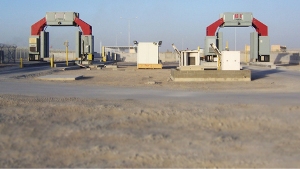Sep 16 2010
NC3A (NATO Consultation, Command and Control Agency) triumphantly put into effect, advanced C-IED (Counter Improvised-Explosive Devices) facilities, on a new Entry Control Point at the Kandahar Airfield. The entire process of installing the devices was carried out, much before the inauguration of the control point, to augment the alliance’s capacity to serve the base.

These C-IED systems will be taking care of one of Afghanistan’s most active entry control points. They would monitor and detect the presence of weapons, explosives and radioactive substances, on both pedestrians and vehicles, passing by. It utilizes cutting- edge technologies which include vehicle scanners for scanning IED in vehicles, pedestrian screening sensing systems, to detect probable suicide bombers and radioactive substances, and also arch metal- detectors for further screening of the public walking through.
This system provides security at the entrance point, at the same time ensuring quick and flawless or smooth logistics that is the mainstay of Kandahar. Operation of the vehicle screening sensor systems will be conducted, offering the maximum output in all ISAF entry control points, by screening hundreds of vehicles every day.
According to Dr. Franco Fiore, NC3A’s Principal Scientist, the rapid deployment of the system was accomplished, only because of the united efforts of the Acquisition Support Group, the support of the contracted partners, Kandahar’s NC3A Field Office and NC3A Project Team Specialists. Due to mutual co-operation, the systems are in place and functioning in readiness for the opening of the control point. This system is one among a widespread list of NC3A’s solutions, taking care to deliver superior technology for project NATO and its Nation members. To boost the C-IED C4ISR capability among the NATO nations, NC3A plans on conducting the first C-IED workshop on Multinational Co-operation, on November 16th.